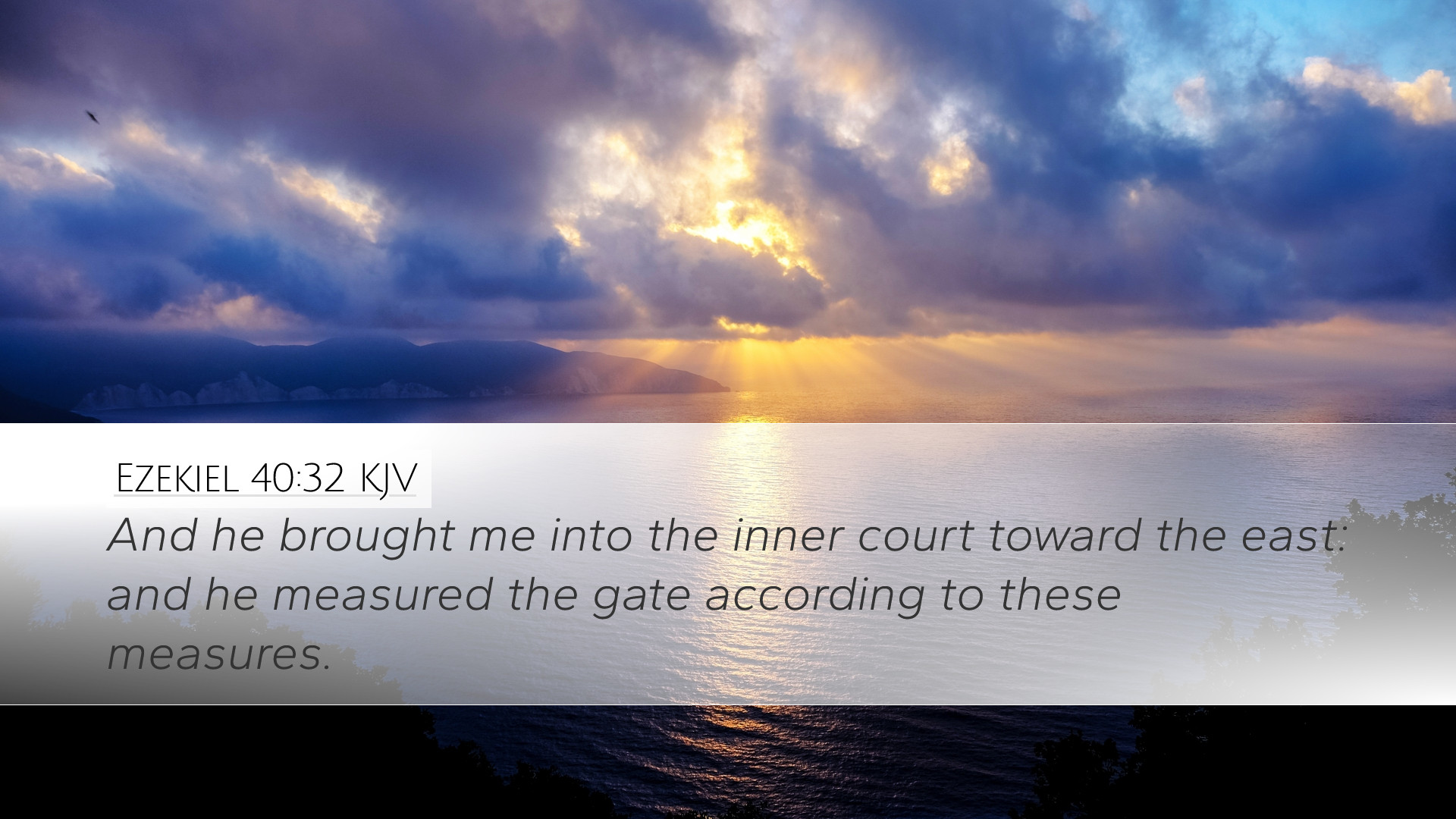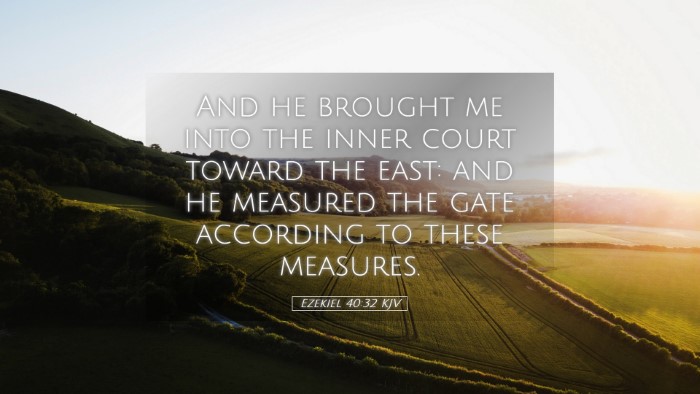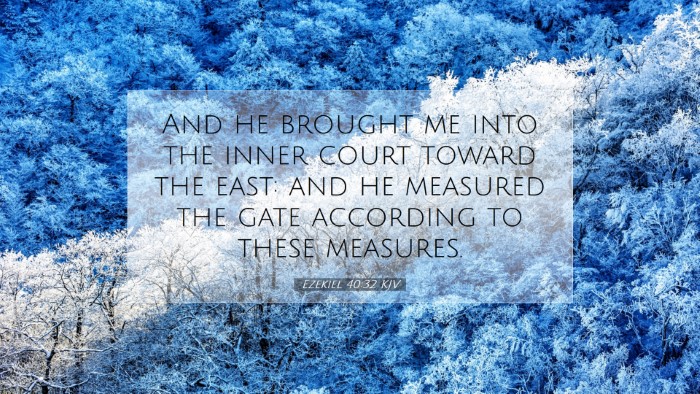Ezekiel 40:32 - Commentary and Insights
Verse: "And he brought me into the inner court; and, behold, at the entrance of the temple were two tables on this side and on that side, to slay thereon the sacrifices."
Introduction
The passage of Ezekiel 40:32 is part of a larger vision that Ezekiel received concerning the restoration of Israel and the temple worship. This vision is characterized by intricate details and rich symbolism, intended to convey deeper spiritual truths to God’s people. The focus here is on the place designated for sacrificial offerings, symbolizing the access of the people to God and the seriousness of worship.
Contextual Background
The book of Ezekiel is often categorized under the prophetic literature of the Old Testament. Ezekiel was a priest and prophet who prophesied during the Babylonian exile. His prophecies are often characterized by vivid imagery and a strong emphasis on the temple, which signifies the presence of God among His people. In chapters 40 to 48, a detailed description of a future temple is provided, indicating a hope for restoration and a renewal of worship practices.
The Inner Court - Significance
Matthew Henry emphasizes the importance of the inner court as a sacred space where the full presence of God is experienced. This area serves as a transitional zone; it is closer to the sanctuary where God’s glory dwells than the outer court.
Albert Barnes reinforces this by elaborating on the significance of access to the inner court, indicating that it represents both a physical proximity to God and a spiritual relationship that has been restored through repentance and faith.
Tables for Sacrifices
The presence of two tables at the entrances for sacrificial offerings brings multiple theological implications:
- Symbol of Atonement: Both Adam Clarke and Henry highlight that these tables symbolize atonement, anchoring the sacrificial system that was central to Jewish worship.
- Accessibility of Worship: The arrangement at the entrance suggests that worship and sacrifice are intended for all who rightfully approach God, reinforcing the theme of God’s invitation to relationship.
- Order and Preparation: The specific design reflects God's divine order and the preparation required for approaching Him, indicating the seriousness of sacrificial worship.
Theological Implications
Holiness of God: The props of the sacrificial system highlight the holiness of God and the necessity of atonement for sin. Barnes notes that the fact that these offerings occur at the temple underscores God’s unchanging divine nature—He remains holy and requires holiness from His people.
Hope for Restoration: The vision of the temple and its sacrifices provided hope for the people of Israel. Henry remarks that this renewed system of worship points ahead to the ultimate sacrifice of Christ, fulfilling the law and establishing a new covenant.
Practical Applications
For pastors and scholars, Ezekiel 40:32 serves as a reminder of God’s desire for sincere worship, which is rooted in proper understanding of His holiness and grace.
Examine Your Worship: This verse encourages reflection on how we approach God in worship. Are our hearts prepared for sincere offerings?
Understanding Sacrifice: Understanding the significance of the table of sacrifices leads to a consideration of Christ’s ultimate sacrifice, challenging believers to live lives that honor that sacrifice through obedience and faith.
Conclusion
Ezekiel 40:32, while stemming from an ancient covenant context, bridges to the present-day relevance of worship and sacrifice. Through the interpretations of prominent biblical scholars, it is clear that this passage invites deeper reflection on the nature of God, the seriousness of sin, and the beauty of grace provided through Christ. As we contemplate this vision, may we embrace the call to holiness and authentic worship—preparing hearts that are ready to enter into the presence of Almighty God.


